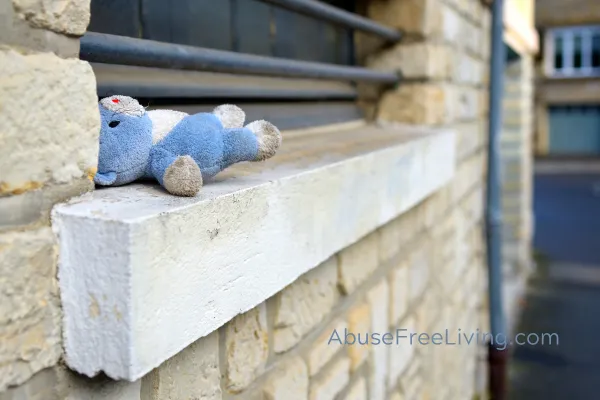BLOG
ABUSE FREE LIVING
Insights and Tips

Understanding and Overcoming Abandonment Issues After a Narcissistic Abusive Upbringing
Unexamined fears of abandonment can profoundly affect our relationships and emotional well-being. These fears often stem from early life experiences and can subtly shape the dynamics of our relationships, leading to patterns of behavior that may not serve us well. Let's explore how to recognize and accept these fears and learn how to create healthier and more fulfilling connections.
Fears of abandonment are deeply rooted in our past, often originating from childhood experiences of loss, neglect, or inconsistent caregiving. These early experiences can leave a lasting impact, making us hyper-aware of the potential for rejection or abandonment in our adult relationships. Unexamined, these fears can lead to behaviors that undermine our connections with others, such as clinginess, excessive reassurance-seeking, or emotional withdrawal.
When driven by a fear of abandonment, we might find ourselves constantly worried that our partners, friends, or loved ones will leave us. This anxiety can manifest in various ways, such as becoming overly dependent on others for validation, struggling with trust issues, or feeling an intense need to control our relationships to prevent perceived threats of abandonment.
Unexamined fears of abandonment can significantly influence our relationship dynamics. They can create a cycle of insecurity and instability, where our actions—though well-intentioned—push others away rather than bringing them closer. For example, excessive reassurance-seeking can lead to frustration and exhaustion for our partners, while emotional withdrawal can create distance and confusion. These patterns can prevent us from experiencing the deep, trusting, mutually supportive relationships we desire.
The first step in overcoming fears of abandonment is to identify and acknowledge them. By bringing these fears to the surface, we can understand their origins and how they influence our behavior. Self-reflection is a powerful tool in this process. Reflecting on past experiences can help identify moments when we felt abandoned or neglected.
We can consider our past relationships and early life experiences, examining how these experiences made us feel and how they might influence our current relationships. By paying attention to our emotional reactions in relationships, we can notice patterns of anxiety or fear when someone doesn't respond immediately or when we seek constant reassurance. Writing these thoughts and feelings in a journal can provide clarity and insight. Reflecting on moments when we felt anxious or insecure can help us understand the deeper fears driving our behavior.
Acknowledging your fears of abandonment is a courageous and empowering step. It allows you to take control of your emotional well-being and start making positive changes. Being kind and gentle with yourself as you navigate these fears is crucial. Understanding that these feelings are a natural response to past experiences and that feeling vulnerable is okay is essential. Practicing self-compassion by treating yourself with the same understanding and care you would offer a loved one can be incredibly healing. Open communication with trusted friends, partners, or family can provide relief and help others understand your perspective. It also opens the door for honest, supportive conversations that strengthen your relationships.
Building trust gradually in relationships through consistent and honest communication can help alleviate fears of abandonment. Taking small steps to let go of control and allowing others to show their commitment and reliability builds trust over time. Mindfulness can help you stay present and grounded, reducing anxiety about potential abandonment. Engaging in mindfulness practices such as meditation, deep breathing, or grounding exercises calms the mind and connects you with your inner self.
Challenging negative thoughts when fears of abandonment arise is another effective strategy. Questioning whether there is evidence to support these thoughts or if they are based on past experiences rather than present reality can help reframe your thinking. Focusing on the positive aspects of your relationships rather than the potential for loss can shift your mindset. If your fears of abandonment are significantly impacting your life and relationships, seeking support from a trauma-informed professional can provide valuable insights and strategies for developing coping mechanisms and working towards healing and growth.
Overcoming fears of abandonment is a journey that requires patience, self-compassion, and a willingness to confront your vulnerabilities. You take the first step towards creating healthier and more fulfilling relationships by identifying and acknowledging these fears. Remember, you have the power to transform your fears into strength and resilience. Embrace this journey with an open heart and trust that you are worthy of love and connection.
With love and healing,
Jillian
FREE DOWNLOAD
Free E-book:
Understanding the Impact of Being Raised by a Narcissist
Let's start making sense of your crazy childhood. Recognizing and addressing the impact of narcissistic abuse on children—and those now grown—is paramount. It is a crucial step in breaking the cycle of abuse and embarking on a healing journey.
© Copyright 2024 JD Integrative Coaching, LLC - Privacy Policy - Terms & Conditions - Disclaimer

